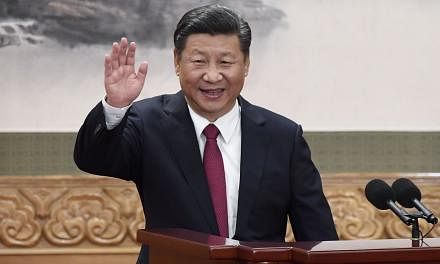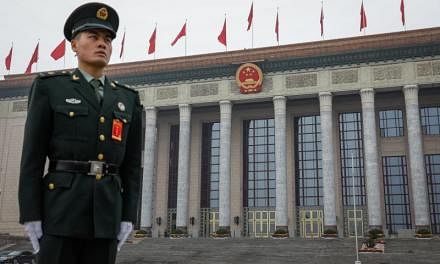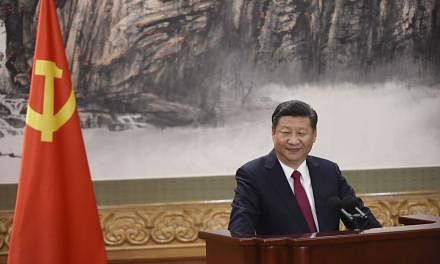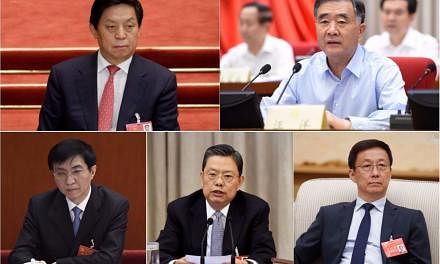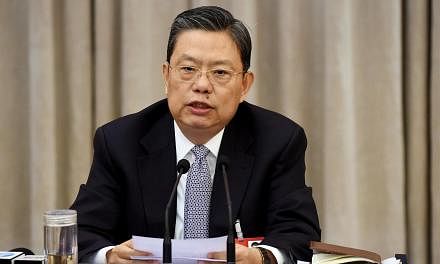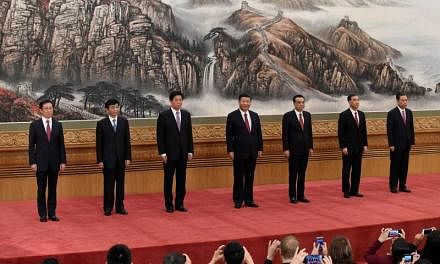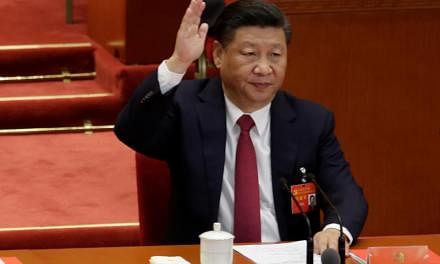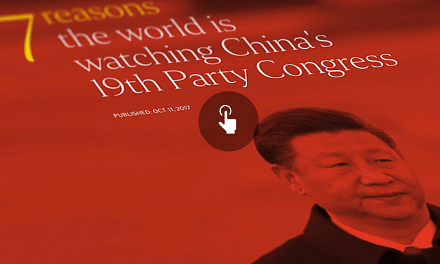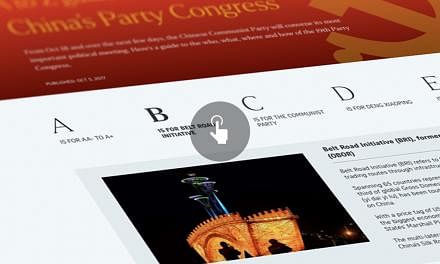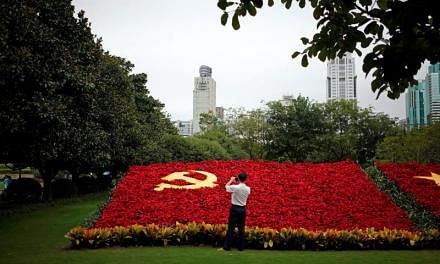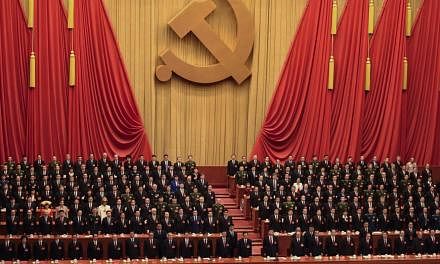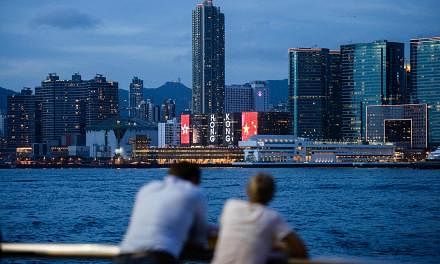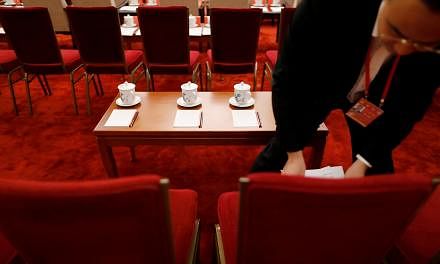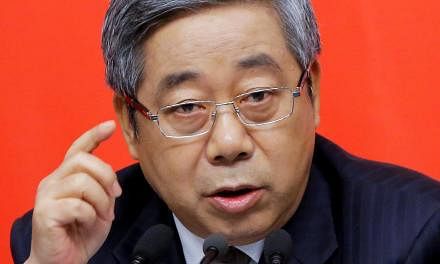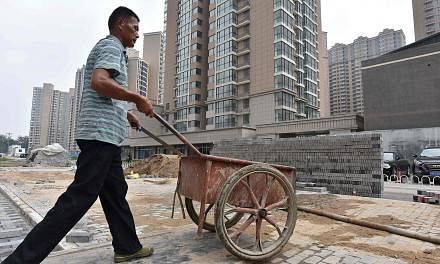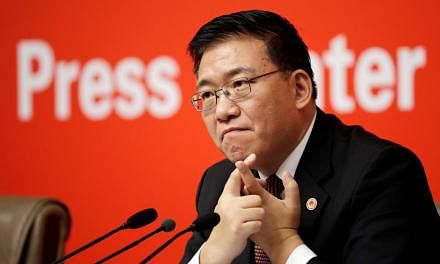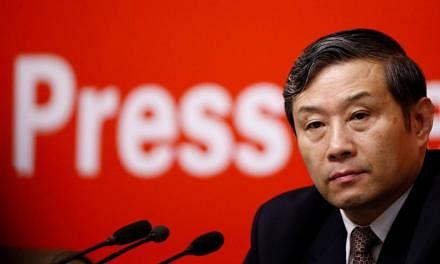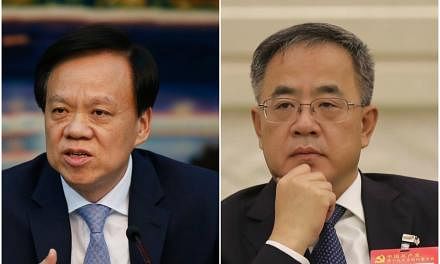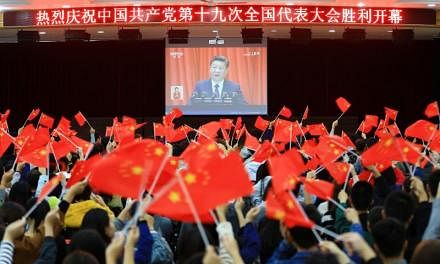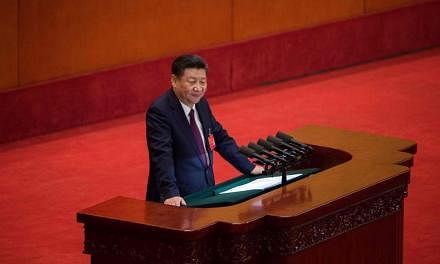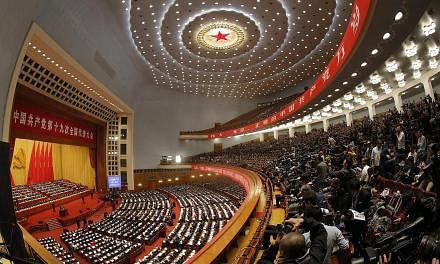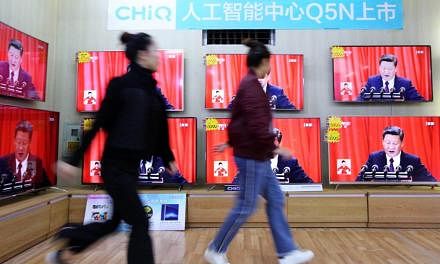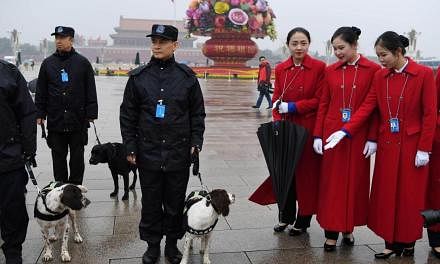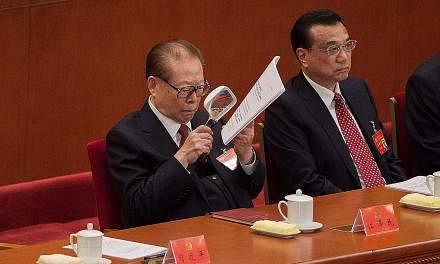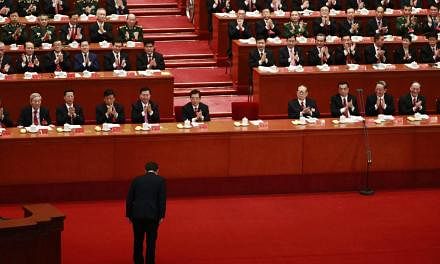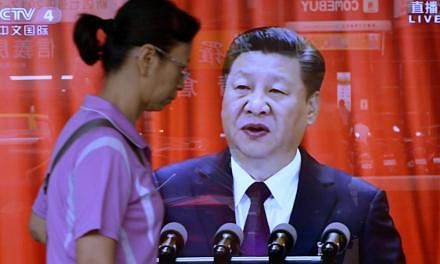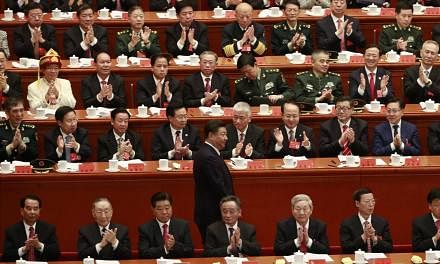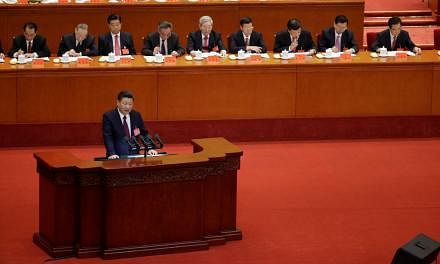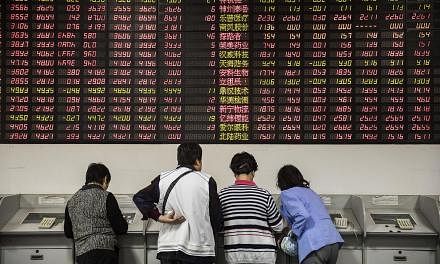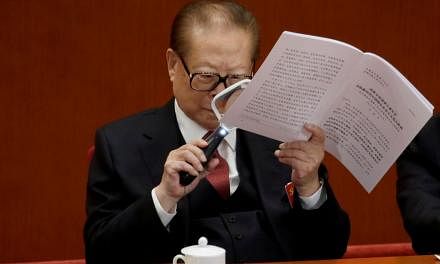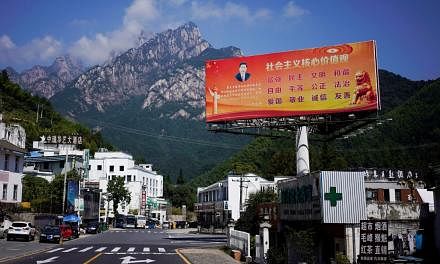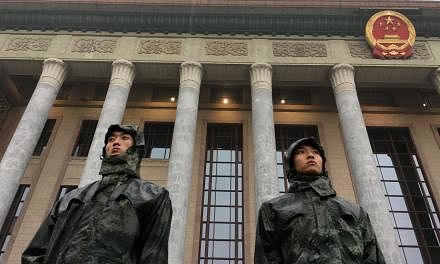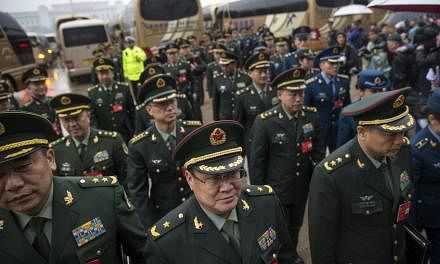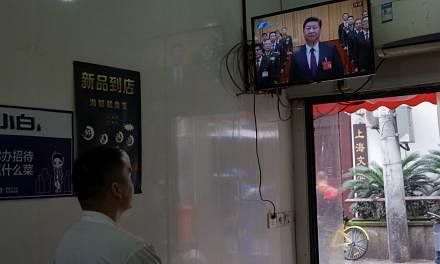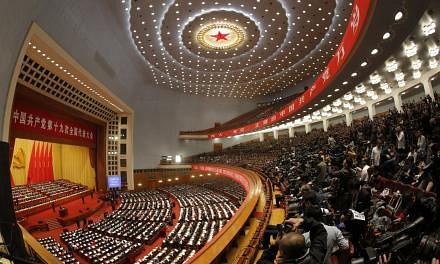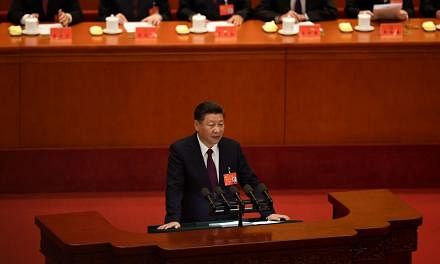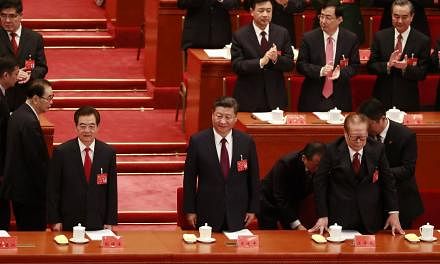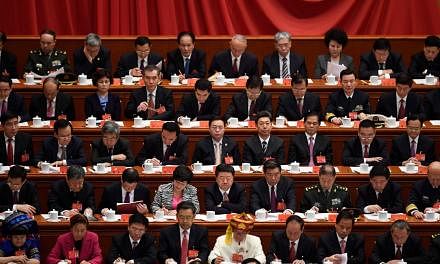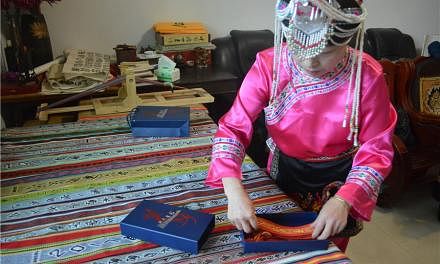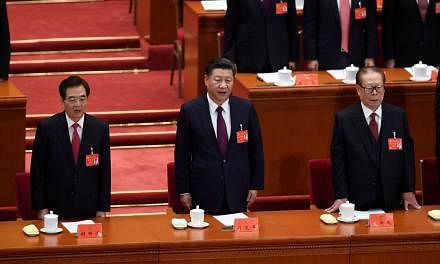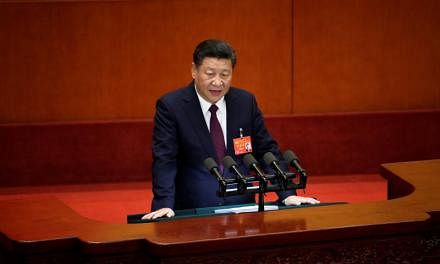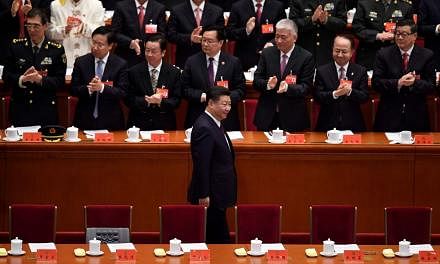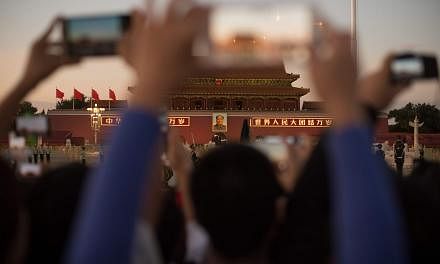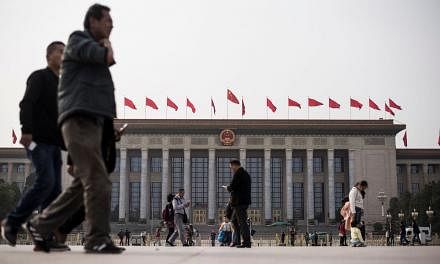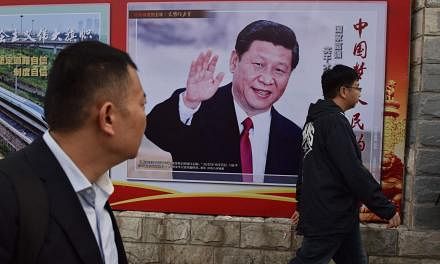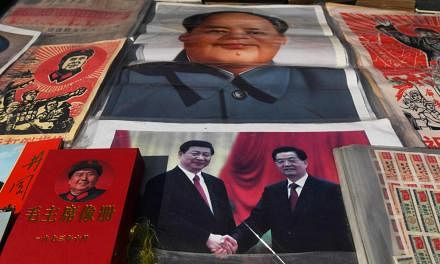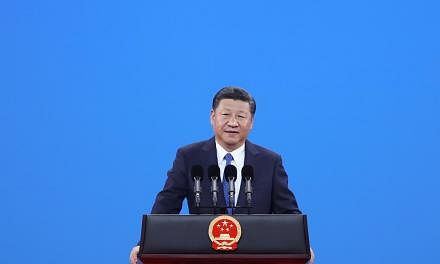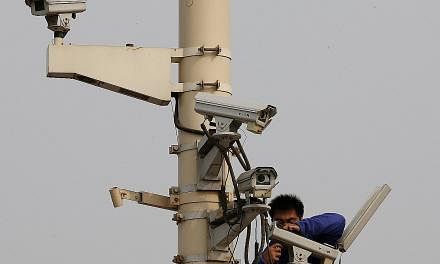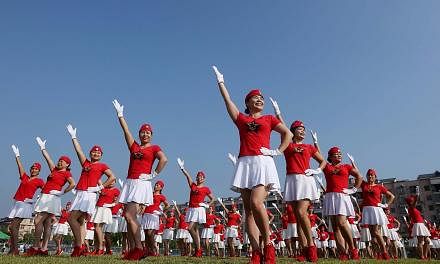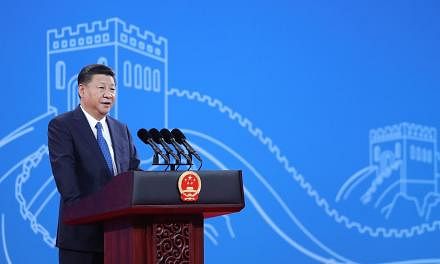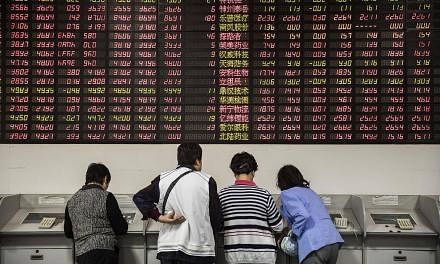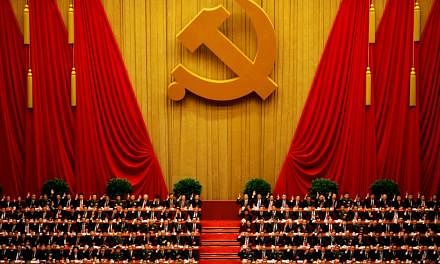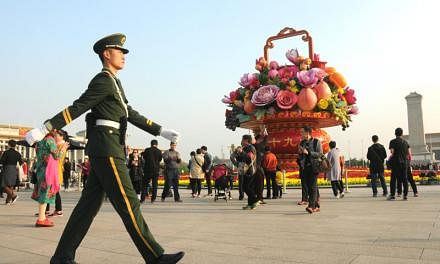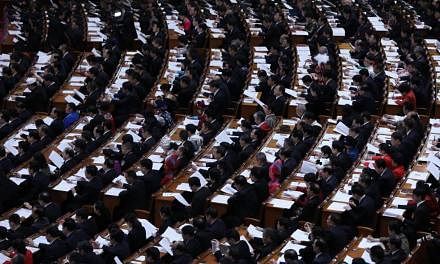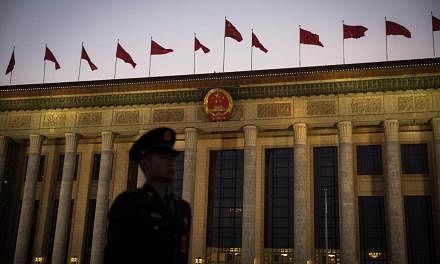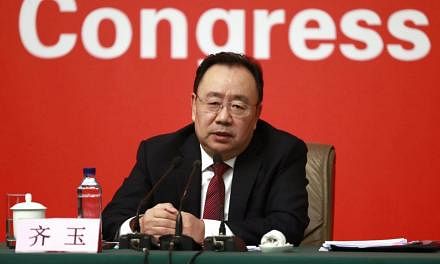China's 19th Party Congress
Issues at stake
While fighting corruption, reforming the military and consolidating power are likely to continue to be high on Mr Xi Jinping's agenda, he is also expected to turn his focus to the economy and global arena.
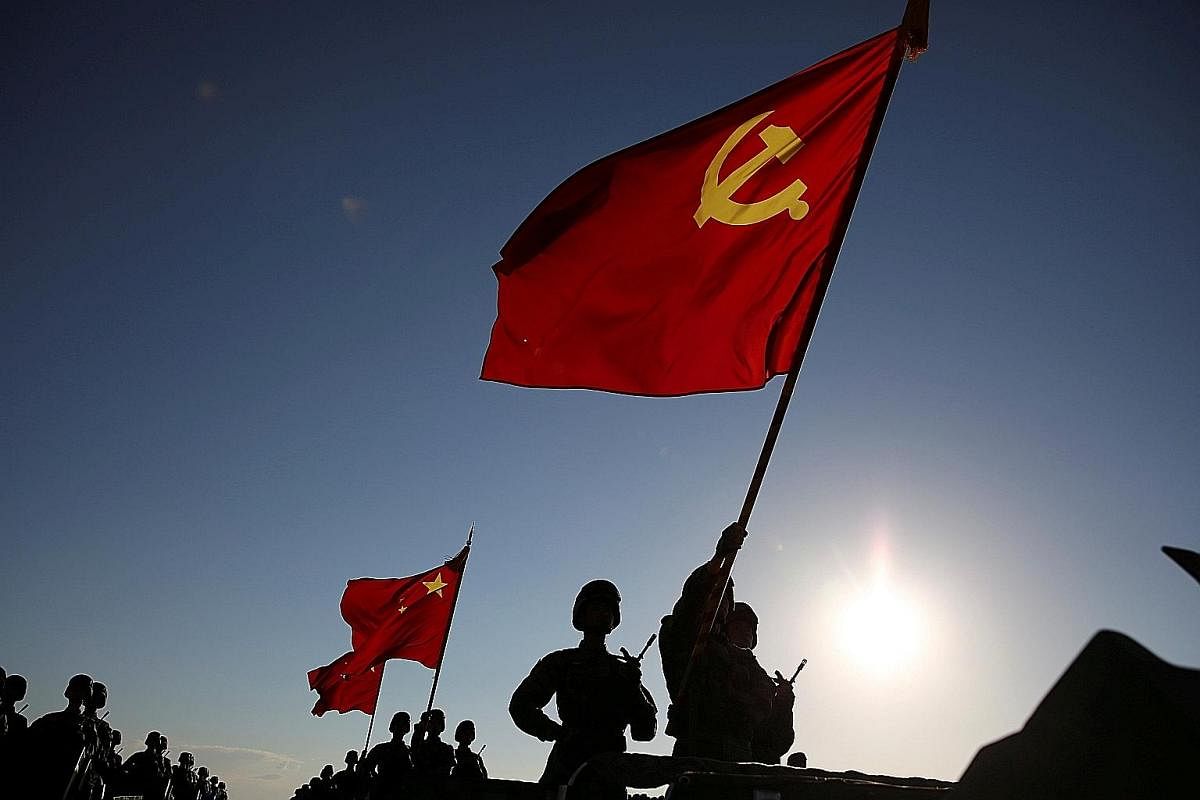
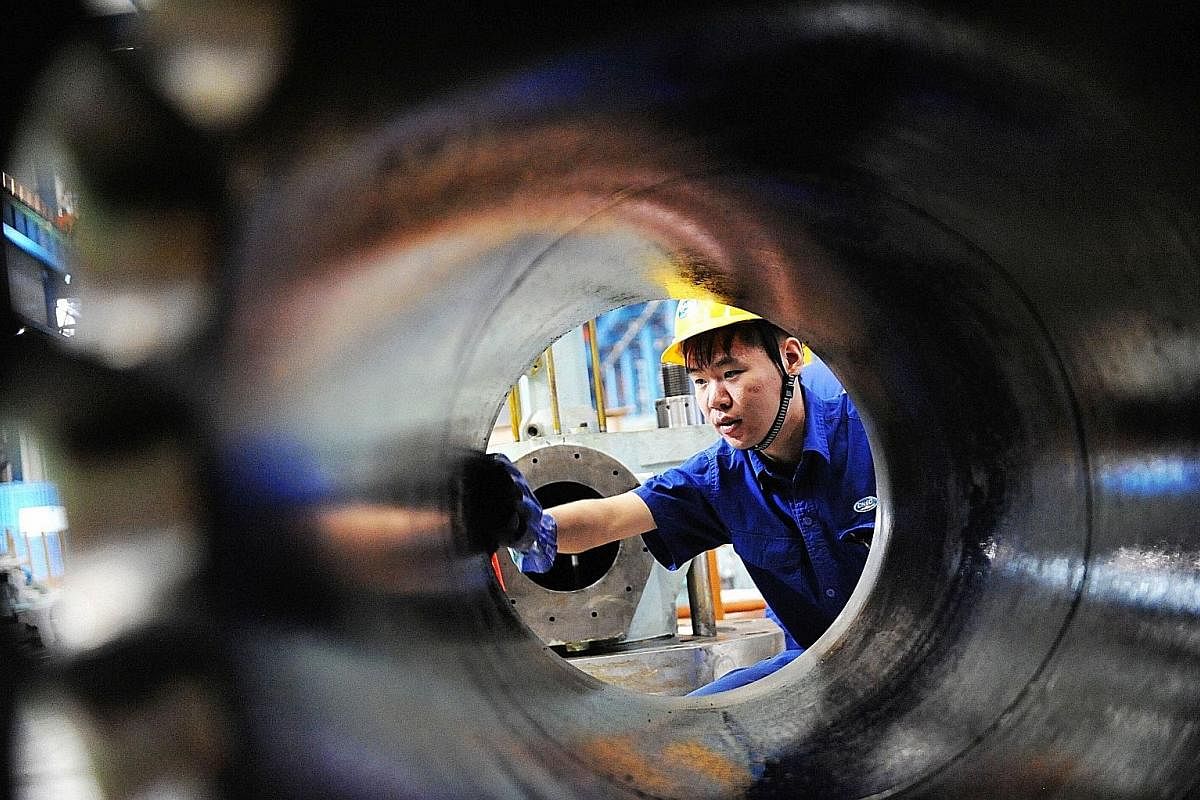
Military reforms: A more nimble, Xi-aligned PLA
The People's Liberation Army (PLA) has undertaken reforms since President Xi Jinping took office in 2012, which have turned it into a leaner and more effective fighting force, but also one more closely aligned to Mr Xi.
As chairman of the Central Military Commission (CMC), Mr Xi has presided over the most sweeping reforms to the PLA's power structure since the Chinese Communist Party took power in 1949.
In January last year, the PLA's four powerful headquarters were abolished and their functions distributed across 15 agencies under the CMC, a move widely seen as a decentralisation of power at the top echelons of the military leadership.
Before this move by Mr Xi, the four general department heads wielded such clout that civilian CMC chairs were often sidelined.
"By dividing them into smaller organs and making them report directly to Mr Xi, it's a way for him to exert direct control over the PLA," said S. Rajaratnam School of International Studies' China expert Hoo Tiang Boon.
Mr Xi's control of the military was to grow: A month later, China's seven regional military areas were regrouped into five theatre commands. In April, Mr Xi was made commander-in-chief of a new joint command headquarters, a sign that he would be more involved in getting each arm of the restructured PLA to operatebetter together.
In tandem with military reforms was increased scrutiny of the top brass under Mr Xi's anti-corruption campaign, seen by some as a way of bringing them in line. Since 2012, more than 40 generals have been arrested for offences like bribery, including two CMC vice-chairmen - Xu Caihou and Guo Boxiong.
Other reforms have also significantly altered the size and shape of the world's largest standing army.
While announcements were made in 2013 and July this year to cut troop sizes, the navy's numbers are being boosted, in line with a 2015 defence White Paper, which stated that "the traditional mentality that land outweighs sea must be abandoned". As part of this rebalancing of the service arms, in 2015 the PLA's rocket force became a full service and a new Strategic Support Force responsible for space, cyber and electronic warfare was formed.
Reforms in the next few years will likely focus on institutionalising these changes, even as China moves to project military power further afield as its overseas interests grow, said Dr Hoo.
Putting an end to abject poverty by 2021
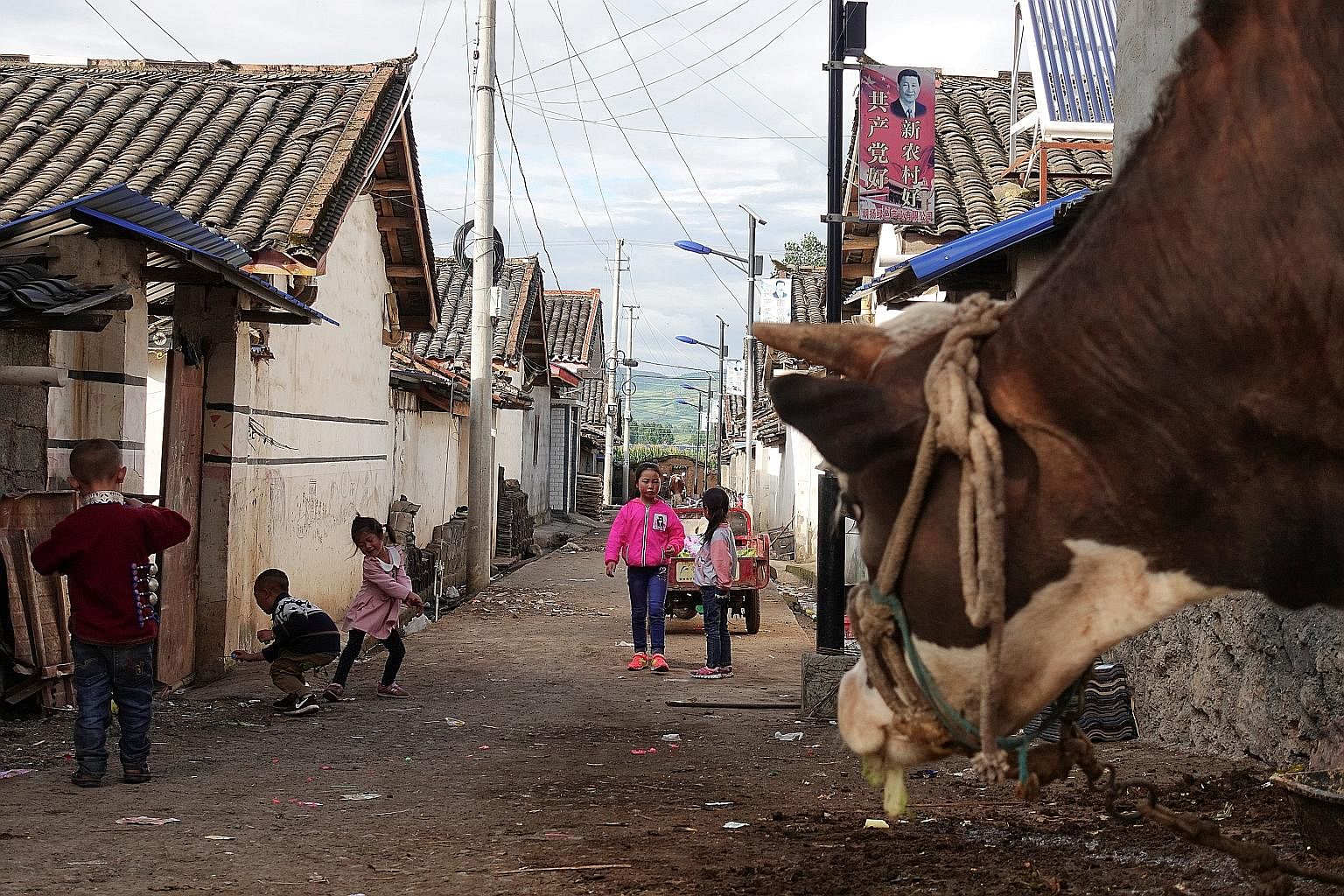
Eliminating extreme poverty is part of President Xi Jinping's central agenda to build a xiaokang, or moderately prosperous society, in China by 2020.
Ensuring there are no abject poor in the country by the time it celebrates the 100th anniversary of the founding of the Chinese Communist Party (CCP) in 2021 is "the baseline task" of this project, said Mr Xi.
China has already reduced the number of people living in poverty by over 700 million since 1980, or three-quarters of global poverty reduction in this period.
But more than 70 million people still lived under the poverty line in 2015, prompting Mr Xi to kick into overdrive his poverty-reduction campaign that year.
Analysts said the drive to erase poverty goes to the heart of the CCP's legitimacy and authority to rule. The party came to power in 1949 on the back of the rural poor.
Decades of reform and opening up have made segments of Chinese society rich, but also raised income inequality to among the world's worst, a recipe for social instability.
The government has focused its efforts on raising the living standards of those, mainly subsistence farmers, in remote villages. Programmes to improve their lot range from industrial development and job creation, to social security payments and relocation assistance for those living in areas with few natural resources. Local governments have also been tasked to help poor villages find alternative income sources, such as by developing agri-tourism.
Such efforts have already started to bear fruit, Minister for Agriculture Han Changfu said last month, with the rural-urban income gap shrinking since 2012.
But Mr Xi has recognised that the law of diminishing returns means the last 40 million people still under the poverty line will be the most difficult to lift up, with many either old, sick or disabled.
This is why there are rumours that he is pushing hard for his political thoughts to be written into the CCP's Charter. "Revision of the party Constitution to reflect the Xi leadership's goals and policies... may revitalise the flagging impetus behind the 2020 project," Stanford University China expert Alice Miller wrote last month.
Anti-graft drive stifles innovation
One of the key elements to have defined Chinese President Xi Jinping's first five years in power is his bold anti-corruption campaign.
His efforts to root out corruption in the Chinese Communist Party (CCP) and the government, cracking down on high-level officials or "tigers" and junior functionaries in local governments or "flies" alike, have won him wide popular support.
Observers had expected him to end the drive after he had got rid of his rivals or potential rivals.
Instead, under his anti-graft czar Wang Qishan, the campaign continued throughout Mr Xi's first five-year term. More than 1.2 million people had been punished by 2016, said the CCP's anti-corruption body, the Central Commission for Discipline Inspection. Nearly 2,600 fugitives have been extradited or repatriated and 8.6 billion yuan (S$1.8 billion) worth of assets recovered, it said in January.
The anti-corruption drive is a way for Mr Xi to consolidate his grip on power over the CCP and state. But it is also part of Mr Xi's broader motive to stem the rot in the party and increase its legitimacy.
There are signs that while the pace of the campaign may be moderated, it will continue, with a national supervisory commission being planned.
However, some analysts say it is impossible for Mr Xi to keep the economy going under state domination and eradicate corruption at the same time.
Local governments have been the primary agents of improvisation and adaptation to changing conditions but the campaign has forced local officials to become risk averse and unwilling to attempt policy innovations on the ground, wrote Assistant Professor Ang Yuen Yuen of the University of Michigan.
Ahead of the party congress, Chinese leaders need to ponder the role of local governments, she said.
Focus to shift back to economy
China's economy has been somewhat outside the crosshairs of President Xi Jinping in the past five years as he focused on fighting corruption, reforming the military and consolidating power.
Economic expansion has been slowing steadily since 2012 in what Mr Xi described as the "new normal" of slower, steadier growth driven by consumption rather than the investments and exports of earlier years. From the 7.8 per cent of 2012, it dipped to 6.7 per cent last year, the slowest in 26 years.
The Chinese economy - the world's second largest - has been undergoing transformation in the last several years, with the structure shifting away from manufacturing to services. The services sector's share of gross domestic product rose to 51.6 per cent last year, from about 45 per cent in 2012.
At the same time, the economy is faced with several challenges - industrial overcapacity, including in steel; under-performing state-owned firms particularly in heavy industries; growing corporate and local government debt and a looming housing bubble burst, among others.
To export overcapacity, build globally competitive firms and stimulate growth of the western provinces, Mr Xi unveiled his ambitious Belt and Road Initiative in 2013 to develop infrastructural links through Asia to Africa, the Middle East and Europe.
His other economic policies and reforms, however, have met with resistance from vested interest groups and local governments.
Mr Xi is set to strengthen his grip on power at the upcoming party congress. He is expected to use this stronger authority to drive economic changes that will help him avert a financial crisis, avoid the risk of being caught in a middle-income trap as well as meet his ambition of doubling the country's 2010 GDP by 2020.
More assertive China under Xi
There is little doubt Chinese President Xi Jinping has been more assertive than his predecessors in the international arena since coming to power in 2012.
China's new assertiveness was already evident after the successful 2008 Beijing Olympics and especially after the 2008-2009 financial crisis, which saw the country's confidence surge against growing self-doubt in the West.
However, Mr Xi's own personality and a new set of circumstances have allowed and impelled him to go further than his predecessors have internationally.
The China under Mr Xi has new capabilities and new needs and interests. It is the world's second-largest economy and largest trading country. It sits in the middle of a regional manufacturing hub. Its military after two decades of double-digit growth in its budget has developed stronger capabilities.
While China under Mr Xi takes part fully in major institutions of the international order, like the World Bank, it also seeks to influence that order, for example, by starting the Asian Infrastructure Investment Bank.
Still, wrote Professor Francois Godement of the European Council on Foreign Relations, China has "deep and unacknowledged interests in maintaining a stable order because of its integration in the global economy".
A disruption of that order would disrupt China's own economic interests, he added.
Mr Xi is presented with both opportunities and challenges brought about by a more isolationist United States and a Western world grappling with a populist backlash against globalisation.
In the face of this, he is likely to continue with the policy of participation in and also shaping of the international order to something more to Beijing's liking after the 19th party congress.
Join ST's Telegram channel and get the latest breaking news delivered to you.
A version of this article appeared in the print edition of The Straits Times on October 09, 2017, with the headline China's 19th Party Congress: Issues at stake. Subscribe

